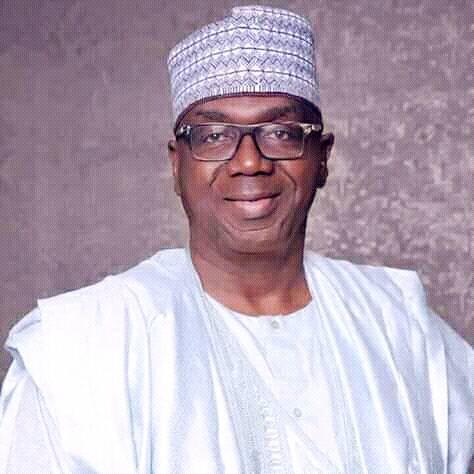Kwara State Government Adopts Strategic Model To Alleviate Poverty

The Kwara state government, north central Nigeria, says, it has adopted a strategic model that would help to empower its citizens, create wealth and alleviate poverty.
Lukman Olukayode Ahmed, Special Assistant on Poverty Alleviation to governor AbdulRahman AbdulRazaq, listed the strategies the Kwara state government is adopting in an interview with Voice of Nigeria in Abuja.
He said the government was especially targeting young men, and women (including the old) as well as the poor and vulnerable in the state.
He added that the intervention cuts across various sectors and areas of the state including; Education, critical infrastructure development, Agriculture, Health; in the sixteen local government areas which has “earned him commendations even from across political divides.''
Non Interest Loans
The Governor's aide also said the state government is giving soft(non interest) loans to market women and to young people doing business, in order to boost the local economy.
In addition, the state government is improving the work force by employing young and vibrant citizens in to government agencies and parastatals.
“Over 50 percent of job opportunities have gone to the youth, a development that has endeared the governor to young people, with some referring to him as a youth friendly governor,” he said.
Infrastructure Development
On infrastructure, Ahmed said government has restored public water supply in the state, as well as strengthened collaborations with security agencies to maintain peace and security to create an enabling and secure environment for businesses to thrive.
Meanwhile, “the state's Kishi-Kaiama Road, has been getting the state government's attention until recently when the federal government took it up,” he said.
According to the 2022 global poverty indicators poverty in sub saharan Africa has reached a record high especially in the wake of the COVID-19 pandemic.
This has pushed the issue of poverty on to the front number across states in Nigeria even as a recent National Bureau of Statistics (NBS), report showed that over 60 percent of Nigerians are multidimensionally poor.
Thus, Mr Ahmed says government at all levels need to do even more to ensure that the people of Nigeria do not fall lower below poverty lines.
Ahmed, who was recently honoured for his commitment in spearheading pro-people and anti-poverty mandate in Kwara state, by FONU-Edutainment, (a non-profit organisation that seeks to promote youth empowerment and inclusion in Nigeria's socio-political space), also called for more interventions across board, and urged Nigerians to continue to work hard to alleviate poverty.
Cloud Tag: What's trending
Click on a word/phrase to read more about it.
Oasis Muslim Care Foundation Aishatu Ahmed Gobir Kunle Suleiman Garuba Alikinla Shittu Yahaya Abdulkareem Babaita Riskat Opakunle Issa Manzuma Galadima Ibrahim Taiwo Road Amosa Memunat Monsuma Segun Abifarin ER-KANG Mining Nigeria Company Limited Aremu Odolaye Mutawali Of Ilorin Muslim Stakeholders Of Kwara State Quareeb Islamic Association Micheal Imodu-Ganmo Road Matthew Babaoye Abdulwahab Ololele Abdulwahab Olarewaju Issa Ahmed Alhasssan Towobola Abdulrahman Toyin Wahab Egbewole Abdulrazaq Aiyelabegan Abubakar Baba Sulaiman EndSARS Iliasu Garba Ado Sanni Col. Adedipe Bayer Nigeria Limited Yusuf Lanre Badmus AGF Abdulrazaq Obayomi Azeez Congress For National Consensus Awili Pedro March 18 Kupchi Hosea Maxwell Coronavirus Tunji Folami IPSAS Wole Oke Dunmade Ishola Balogun Fulani AbdulGafar Tosho Sabi Oke-Odo Noah Yusuf AbdulRazaq Jiddah Facemasks Labaeka Omotosho Isaac Gbenle Yusuf Amuda Abubakar Olumide Daniel Ibitoye Kamaldeen Ajibade ER-KANG Mining Abraham Ojo Ali Ahmad Umar Ahmed Gunu Omupo Kehinde Boyede Ishaq Oloyede Abubakar Lah Junior Secondary School Certificate Examinations Christian Association Of Nigeria Ijagbo Ibrahim Oloriegbe Code Of Conduct Taiwo Joseph Otunba Taiwo Joseph Bamikole Omishore Oke-Oyi Yusuf A. Usman Maja Abubakar B.M Bello John Olanrewaju


